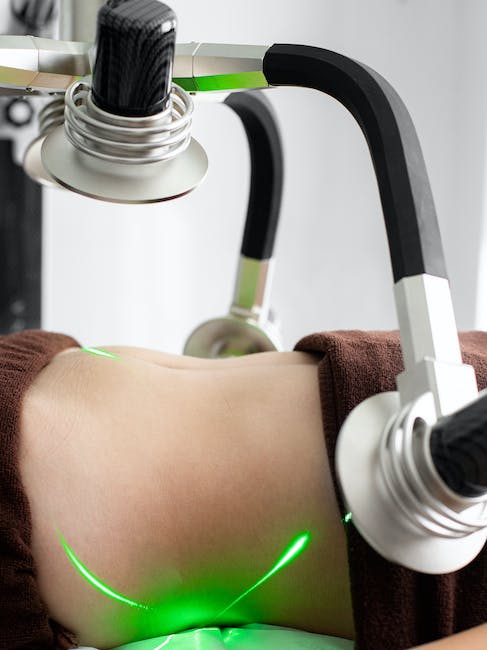Do you feel like despite your best efforts to lose weight it’s not happening? Maybe it’s time to take a look at drugs as an option for you. Many of today’s drugs help you lose weight and keep it off through a combination of suppression of appetite and calorie burning processes. Discover the drugs available to you to help you in your weight loss journey!
1. Making Weight Loss Easier: Introducing Weight Loss Medication
If diet and exercise are not enough to see results in weight loss, medication may be an option worth considering. Weight loss medications are not magic pills – they require lifestyle changes and healthy habits to be effective. But they can make it easier to manage the process with fewer cravings, more energy, and a greater feeling of satiety.
The correct medication varies from person to person, so it’s important to consult a doctor or medical weight loss specialist to establish which type is most suitable for you. Here are the four main types of weight loss medication:
- Acceptance and Commitment Therapy: This type of therapy helps people to accept their feelings rather than repressing them. It encourages individuals to focus on the behaviour associated with the feelings, rather than the feelings themselves.
- Anti-obesity Drugs: These are normally prescribed in combination with lifestyle and dietary changes. They can reduce appetite and the feeling of hunger.
- Appetite Suppressants: These medications act directly on the central nervous system, reducing hunger and cravings to help people feel fuller and more satisfied.
- Eating Disorder Medication: This medication may be prescribed to those with an eating disorder to help manage feelings of hunger and control eating patterns.
It is important to note that weight loss medications may come with side effects, so it is essential to speak with your doctor first and discuss all the possible risks. With the help of your doctor, you can find the right medication to stick to a healthy diet and exercise plan, making the process of losing weight easier and more manageable.

2. How Does Weight-Loss Medication Work?
Appetite Suppression
Weight-loss medications work by suppressing your appetite, to help you reduce the amount of food you consume. The commonly used medications achieve this through two main ways:
- Decreased cravings- Certain medications work by increasing the production of particular hormones that help to reduce hunger pangs and cravings.
- Inhibit leptin- Some medications inhibit leptin, the hormone associated with feeling full.
Increase Metabolism
Another way which weight-loss medications work, is by increasing your metabolism, which is usually done through making changes to your hormones, which can work on different levels in the body:
- Ghrelin- Some medications increase hormones like ghrelin, which are responsible for regulating your metabolism.
- Ghrelin uptake- Some medications help to regulate the uptake of ghrelin, which can help to kick-start the metabolism.
- Thermogenics- Certain medications work by raising your body temperature, causing your body to burn more calories.
Fat Burning
Weight-loss medications can provide you with a third way to lose weight, by burning fat. The most common way this is achieved is through harnessing the power of the body’s own natural fat-busting enzymes:
- Hormone Therapy- Certain medications stimulate the release of the hormone GLP-1, a fat- burning hormone.
- Enzyme Enhancers- Others work to enhance the activity of the fat-burning enzyme HSL, which helps to break down fat.
Blood-Sugar Management
Finally, some weight-loss medications can help to manage your blood sugar levels, helping you to lose weight and manage your cravings. This is usually done through:
- Insulin Regulation- Medications can help to regulate the release of insulin, which helps to keep blood sugar levels in check.
- Glucose Regulation- Some medications can help to regulate the release of glucose, which can help to control hunger and cravings.
In conclusion, weight-loss medications work in a variety of ways to help you to lose weight, from suppressing your appetite and reducing cravings to managing blood sugar levels and burning fat.
3. Examining the Risks and Benefits of Using Weight Loss Drugs
Weight loss drugs can offer a range of benefits for those trying to shed the pounds. Firstly, these drugs help to suppress appetite which aids in reducing food intake and calorie intake. This can jumpstart a person’s weight loss journey and is an effective way to begin the process of achieving their desired body weight.
However, it is important to seriously consider the associated risks of using weight loss drugs. It is essential to talk to your doctor before embarking on a regime of weight loss drugs as they can have severe side effects on the body. Some of the side effects that could be experienced with taking weight loss drugs include:
- Insomnia
- Dry mouth
- Diarrhea
- Increased heart rate
Naturally, the benefits and risks should be carefully considered before taking weight loss drugs. Doing research to become informed on the drugs is recommended before purchasing any weight loss drugs. For those who are only considering using these drugs, it is better to think of alternate and perhaps healthier ways to lose weight, such as through the combination of exercise and healthy eating.
Lastly, it’s important to inject caution when taking weight loss drugs. It is easy to neglect the possible side effects by seeking out the potential benefits. Therefore, always be sure to consult with a doctor before beginning a weight loss drug regimen.
4. Finding the Right Weight Loss Drug For Your Needs
When it comes to losing weight, it’s important to find the weight loss drug that is right for you. Thankfully, the science and technology of weight loss medication is advancing, so it’s never been easier to find the drug that works best for you. Here are four tips to help you find the perfect weight loss drug:
- Do Research: Take time to research the different weight loss drugs available and their side effects, so you know what to expect. Check out online forums to see how other people fared with certain drugs. Also, check with your doctor or other healthcare provider.
- Set Goals: Figure out exactly what kind of results you want in terms of weight loss. Consider how quickly you want to see results and how much lifestyle changes you can make. Knowing your goals will make it easier to set realistic expectations.
- Examine Ingredients: Some weight loss drugs contain ingredients that could be harmful if taken in excess, so be sure to research each ingredient before taking the drug. If you’re unsure, consult a doctor or dietician to help you.
- Review Feedback: Check out reviews of the different weight loss drugs you’re considering to see how others with similar goals fared. This can be a great way to narrow down your choices and make sure you make the best decision for you.
By being mindful of these tips, you will be able to find a weight loss drug that is perfect for your needs. With the right drug, you can get the weight loss results you want safely and without compromising your health.
Remember to check with your doctor before starting any weight loss plan. He or she can help you make sure that the plan is safe and effective, so you can get the most from it.
5. Achieving Your Weight Goals: Getting the Most Out of Weight Loss Drugs
Weight loss drugs can be a great way to help jump-start your weight loss journey. However, to get the most out of any dietary medication, it’s important to be aware of the following attributes.
Follow the Directions
Most weight-loss drugs come with an instruction packet or booklet containing detailed instructions. Follow them precisely to ensure the medications are as effective as possible. Make sure to pay special attention to dosage instructions, expiration date, and any warning or side effects.
Manage Diet and Exercise
Taking weight loss drugs is only part of the equation. To maximize their benefits, combine with dietary changes and exercise. Make sure to get enough protein in your diet to help with muscle retention and metabolism. Get in the habit of exercising regularly and make sure to focus on both strength and cardio.
Track Results
Keeping track of your results is essential in measure the effectiveness of your drug regimen. By monitoring your weight, body fat levels, and other key statistics, you will have a better understanding of what is and isn’t working. Documenting your physical and mental progress can also improve motivation.
See a Professional
Weight-loss drugs cannot take the place of professional medical advice, so be sure to speak with your primary care physician before starting any weight loss medication. Your doctor can alert you to any possible side-effects or warning signs. He or she can also help you determine what drug regimen might work best for you.
If you or a loved one are struggling with weight, there is hope. Remember that these drugs are not a cure-all and that they should be combined with a healthy diet and exercise for maximum effect. But, if used correctly, you may find that one or more of these drugs could help you reach your weight-loss goals. Don’t be afraid to take the first step toward a healthier you—you owe it to yourself!
